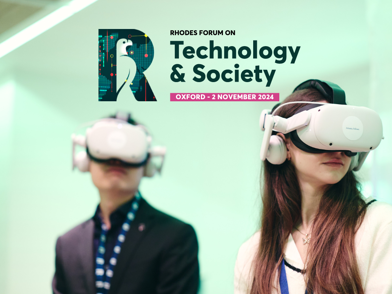The Rhodes House Conferences inbox is a very busy place to be in the week before an event like the Forum on Technology & Society, full of logistic details for speakers, queries for would-be attendees who missed the registration deadline and “here’s version of 11 of the Forum handbook” sorts of messages. But amongst this, one conversation stood out as a thought-provoking highlight.
It started with a complaint about our choice of promotional image for the Forum from Dr Robert Knapp (New York & Magdalen 1965). A lightly-edited version of our conversation is reproduced here with his permission.
I keep hoping that this Forum will embody the connection between personal character and public presence and action which has been part of the Rhodes Scholarship from the beginning. We all know the wording from the Rhodes will about what the scholarships were looking for—
qualities of [personhood] truth courage devotion to duty sympathy for the protection of the weak kindliness unselfishness and fellowship and his exhibition during school days of moral force of character and of instincts to lead and to take an interest in his schoolmates for those latter attributes will be likely in afterlife to guide [them] to esteem the performance of public duty as [their] highest aim
But communications from you organizers aren’t yet doing it. The opening image of two people in VR masks has no visual message about connecting those people with protection of the weak, kindliness, fellowship and so on. The image is of two people not connected to each other, nor to us the viewers of the image.
I am planning to attend. My hopes continue. But you can do better than what you’ve shown so far.
Yours,
Rob





